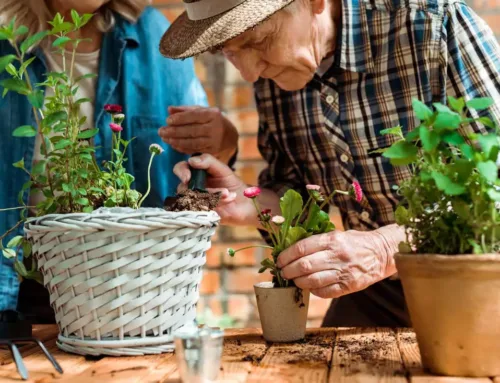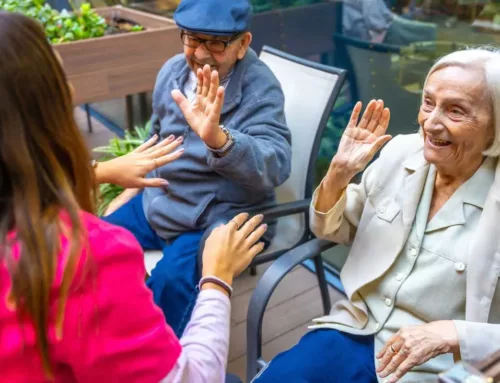
Caring for a parent or senior loved one is an incredibly selfless act. But perhaps due to their endlessly giving nature, family caregivers often find themselves neglecting their health, goals and wishes to prioritize a loved one’s care. If this sounds like you, consider how you could implement better self-care practices into your daily routine.
You deserve to feel fulfilled, happy, and healthy while caring for your loved one. What’s more, looking after yourself will undoubtedly improve the care you can provide – it’s hard to pour from an empty cup. To determine the kind of self-care that would benefit you most, think about how you’re feeling and look at the ideas below.
If you’re feeling…
Exhausted or Unwell
Taking care of a senior loved one often takes a toll on family caregivers’ physical health and fitness. After all, when you’re so focused on your loved one’s health, it can be easy to neglect your own. If you’ve noticed yourself feeling more tired than usual, adopting poor eating habits, or catching infections more frequently, it might help to prioritize some of the following self-care practices.
- Eat a well-balanced diet, including fruits and vegetables.
- Make sure you’re drinking plenty of water each day.
- Go for a short walk every day if you’re able.
- Make time to engage in the exercise you enjoy that suits your abilities.
- Prioritize sleep and try to keep a regular sleep schedule.
- Make sure you’re consistently taking any medications as prescribed.
- Schedule a physical check-up with your physician.
Overwhelmed or Disorganized
Feelings of overwhelm are shared among family caregivers, particularly those who balance responsibilities like raising a family, caring for other relatives, or holding down a job. With too many plates to spin, your life has started to feel busy, chaotic, or disorganized. If this sounds like you, try implementing some self-care habits.
- Ask a friend or relative to lighten the load of your caregiving responsibilities by checking in on your loved one for a day each week or picking up some groceries.
- Meal prep at the weekend to avoid spending as much time cooking throughout the working week.
- Create a to-do list each morning that lists tasks in order of priority – keep it simple and achievable.
- Set boundaries to avoid overworking or overcommitting and help you prioritize relaxation (e.g., “I will not check my work emails after 6 pm”).
Isolated or Lonely
Social interaction is vital to maintain good mental and physical health and social isolation has been linked with health consequences, including lowered immunity and cardiovascular function, depression, and poor sleep. If most of your spare time is spent caring for your parent or relative, you may feel isolated from friends, family, or the outside world. Try these self-care habits if you’re feeling lonely as a family caregiver.
- Ask another relative to take a caregiving shift every week or two, giving you an evening off to catch up with loved ones.
- Arrange regular respite care or take your loved one to a local senior center once or twice a week to free up time.
- Organize a weekly catch-up with friends via FaceTime or Skype.
- Join a caregiver support group (either in person or online).
Anxious or Depressed
Some family caregivers find that their role negatively impacts their mental health. If you’re worried about your loved one or are concerned about managing multiple responsibilities, the mental toll may be even more significant. If you find that caregiving leads to anxiety, irritability, or depression, you may benefit from practicing self-compassion with the following self-care habits.
- Take up a mindful practice like yoga or meditation.
- Listen to a helpful podcast or relaxing music.
- Confide in a family member or close friend.
- Prioritize some ‘me time’ each day. Time for yourself may be as simple as taking a luxurious bath or spending 10 minutes outside in nature.
- Reach out to a professional if you’re struggling to cope alone.
2 Quick Tips to Prioritize Acts of Self-Care
- Create realistic morning and evening routines that include self-care rituals.
- Use a habit tracker to check off daily self-care activities.
Self-Care is no Longer Working – What now?
It’s important to note that more than self-care is needed. Sometimes, you can be doing everything right and still find that being a family caregiver while staying healthy is no longer achievable. If this is the case for you, there’s no shame in looking into additional care for your loved one. This extra support may come from other relatives or a home health service that can give you time to attend to different responsibilities. Alternatively, you may look into local assisted living communities.
Why Choose Saguaro Ranch Assisted Living?
We understand that many seniors worry about moving to a senior care community, so we aim to provide an environment that feels like home. Our luxury assisted living and memory care home sits within a large, rural ranch-style property, surrounded by nature and exciting opportunities for activities. Our caregivers are highly trained and educated on the many challenges seniors face in retirement, from loneliness and depression to physical health concerns. Offering a range of activities, including yoga, Zumba, pet therapy, and picnics, we’re committed to empowering each resident to live a life that nurtures their interests and creative spirit.
Get in touch today to speak to our team, have your important questions answered, or arrange a guided tour of our truly unique community.




